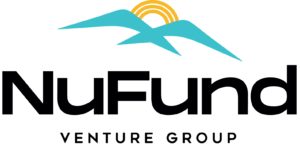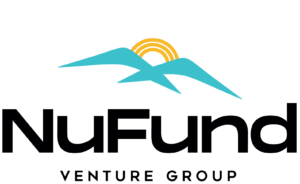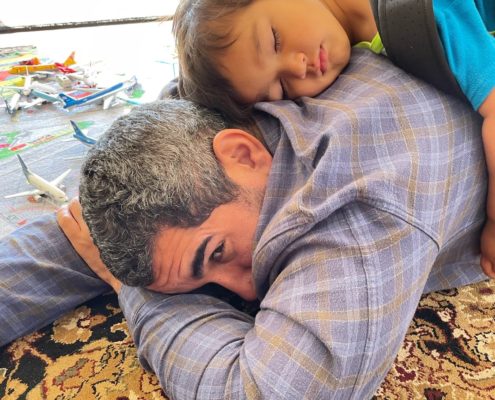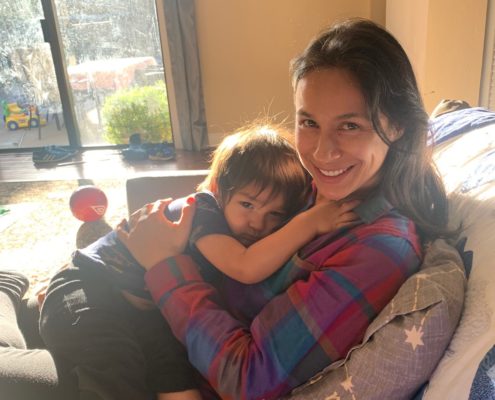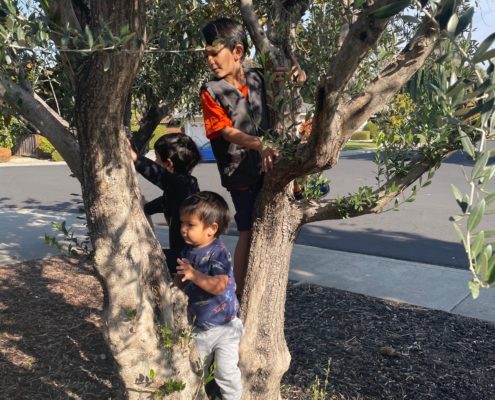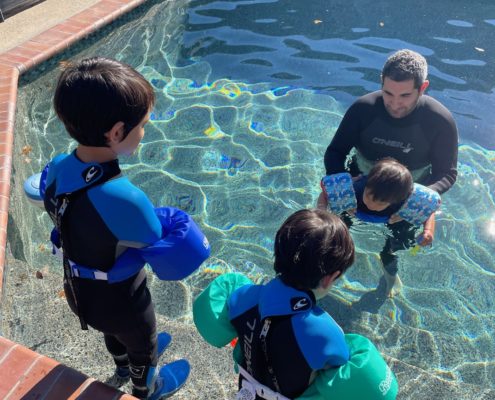TCA Member Spotlight: Dr. Shadi Battah
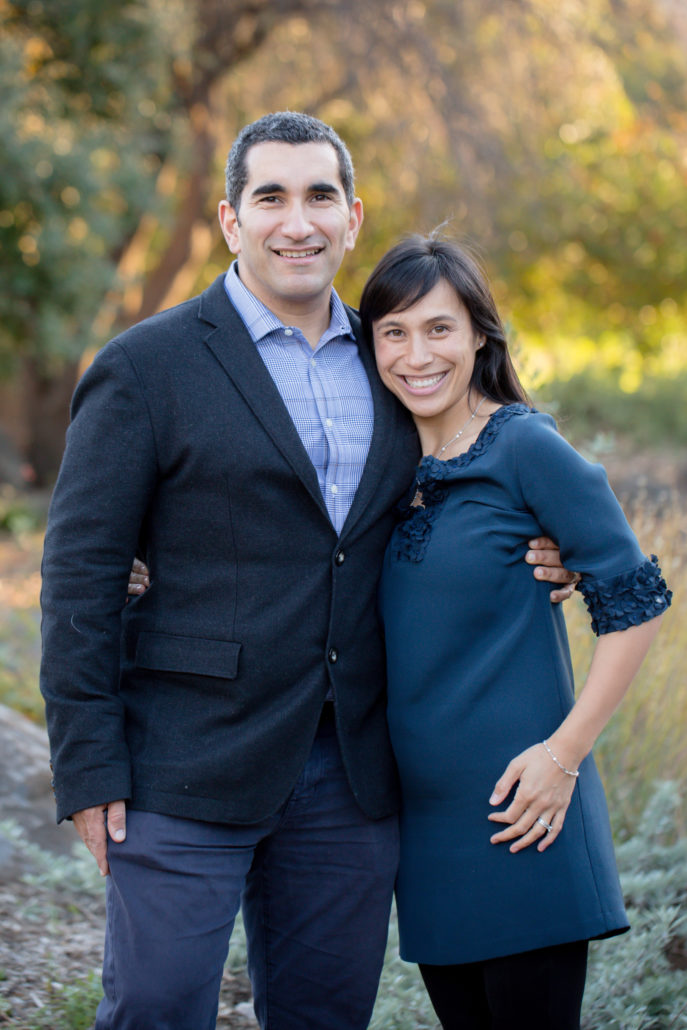 Dr. Shadi Battah (pictured with his wife Carisa) is an Intensivist with the Alaska Hospitalist Group, as well as an active angel investor.
Dr. Shadi Battah (pictured with his wife Carisa) is an Intensivist with the Alaska Hospitalist Group, as well as an active angel investor.
Tell us a little bit about your background. How did you end up where you are today?
I come from a middle class family. My parents are both educated and focused on education and achievement. My dad is an electrical engineer, and my mom is a sociologist. I have three sisters and one brother. I was born in Lebanon and lived most of my life in Jordan where I went to high school and medical school. Shortly after graduating I came to the States to pursue internal medicine. I was in Cincinnati OH for three years, and then I went to Albuquerque NM for a specialization in pulmonary and critical care medicine. I spent three years there. So that’s my education track.
Shortly after finishing in New Mexico I went to Alaska to start practicing critical care medicine. I followed in the steps of two of my previous colleagues who were trained at UNM and ended up in Alaska, I figured I might as well go and check it out, and little I’ve known that I’ll meet my wife there and end up spending the majority of the past decade in the last frontier!
As I developed my non-clinical skills, I started getting interested in health care innovation, and I always liked the entrepreneurial aspect of small business, so I started dabbling in angel investing using public platforms around 2014 – like Angelist, WeFunder, and Funder’s Club. Just to try and stay on the cutting edge of things. I also did a couple of projects in real estate on the East coast with one of my friends.
I eventually ended up putting together a small fund with a group of my colleagues. I’m managing the fund and allocating with a focus on investing in healthcare (especially digital health) and tech.
Can you talk about your reasoning for creating the fund?
I really believe that health care innovation is very needed, and we need to look at solutions that achieve what the Institute for Healthcare Improvement calls the “quadruple aim”; solutions that provide better patient care, improve the quality of care, at a lower cost, while giving both the patient and the health care provider the best experience possible in terms of the interaction and communication. That’s my basic screening tool.
The other aspect is that I’m a big believer in the middle class and small business. I can put my money in many places, but I prefer investing in entrepreneurial hard-working people, in the local economy, and in real job creation. Startup investing is risky, but at the same time I know the money goes directly to actual people, to creates jobs, and to creates the potential for change. That’s the nuts and bolts of why I’m doing this.
Is managing that fund something you’re looking to bring more people in and expand on, or is it more of a sideline for you?
Let’s put it like this: COVID-19 last year derailed my timeframe quite a bit, because I’ve been heavily involved at the bedside taking care of patients. The situation created a lot of anxiety and uncertainty and there was a lot of time spent on managing the consequences of the COVID pandemic, which didn’t leave much for other aspects of what I like to do. At the same time, COVID accelerated adoption of digital healthcare platforms and telemedicine, there has been that kind of activity.
Going forward I am thinking about how to further this part of my investing journey. Possibly consulting, and raising larger rounds. But it’s a moving target right now, I’m not sure to be honest.
I’m also pursuing my MBA. I’m more than halfway done, and it’s through University of Massachusetts, I’m learning a ton and I think that’ll really help me make a better-educated decision in how to proceed.
But you know, I love clinical medicine, and I love the bedside, taking care of patients, talking to families, seeing people get better, or if they’re not getting better, helping them through end-of-life situations. Even if I end up spending more time in Ventura capital , I always want to have my hands on the pulse of the healthcare industry and the best way to do that is to continue to be engaged on the clinical care side, at all times. The nature of what I do allows me to scale my number of shifts up and down depending on what else is going on in my life, which is a blessing because it’s not an option for a lot of people.
My perspective, right now at least, is that I want to always be involved in clinical medicine, and telemedicine, even if not in the same capacity or total number of hours that I’m spending now. I think keeping a close eye on what’s going on in the clinical side comes in handy for an administrative job in healthcare in terms of recognizing what’s necessary and what areas need innovation.
How did you end up joining TCA?
One of my friends in New York told introduced me to Eugune Cho, the CEO of Discover Echo. I ended up syndicating some money alongside TCA’s investment. TCA was the lead investor, and I met Dean Rosenberg over the phone, discussing TCA’s due diligence. Eventually I was introduced to Ashok and Sergio. I really liked the conversations and people a lot, and few years ago ended up becoming a remote TCA member.
Tell us a little about your family.
I’m married, we have three boys. My wife Carisa took a unique path in her education. She did her undergrad in psychology (with minor in math and biochemistry) at USD, and after working in psychology for few years, she went to school to pursue nursing, and most recently completed her masters degree in nursing education and was an adjunct professor at University of Alaska.
My three boys are Sami, Ramzi, and Zayne. They’re all young (6, 4, and 2 years of age), and keep us super busy. We’re hoping as life goes back to some kind of normalcy and the kids go back to school that Carisa will be able to resume her work in nursing education or some clinical nursing in a part-time capacity, hopefully in the next two or three years.
Is Carisa also interested in the business and investment side of healthcare?
She says that she doesn’t like the business side of things, that she’s more focused on the educational aspects of healthcare, but I find myself often bouncing ideas off of her, especially when it comes to tech platforms that have something to do with social media or e-commerce. She has a good eye for what might take off. I find myself often reflecting on her use of certain apps – a while ago I ended up investing in a pre-IPO company based on her recommendation after using the app and experiencing their service, and it did REALLY well after the IPO. So she has a good eye for things, but she doesn’t really want to get too far into it.
You’re relocating to California. Will you be coming to San Diego?
We have family in the Bay Area, including Carisa’s grandmother – who is 97 – so we are trying to spend as much time with her as possible. We live next door to her right now. Down the line I think we are very interested in moving to San Diego, considering my wife’s love affair with the city – she loves San Diego, and she always talks about the city, I think the 4 years she spent there in undergrad had a profound impact on her. Not to mention she loves the weather as well. For me, being part of the TCA Community has been extremely valuable: the amount of learning I’ve done the past three years has been amazing, and the people I’ve met and connected with and became friends with is invaluable to me. I think moving to San Diego would be a natural transition when the time is right.
What did you do for fun pre-COVID, and what are you doing these days?
Pre-COVID I played a lot of soccer, both indoors and outdoors. That’s actually how Carisa and I met; we met for the first time during a coed game in November 2010. We’ve been playing together ever since, though sometimes on different teams. Soccer has always been a big part of my life; unfortunately COVID has thrown a big wrench into that. Chess has also been a big part of my life, I’ve been playing since I was 5 after my dad taught me. He was a good player – it took me like 10 years to beat him! I play chess almost daily, one short game per day, it’s my way to decompress. I also love to read – nonfiction, with focus on economics, politics, and philosophy. I read a lot in healthcare as well obviously.
We’ve been doing a lot of hiking whenever we have the chance. We go to places that the kids can hike with us too, we can’t be as crazy as we were ten years ago. We’ve done some mountain climbing in Alaska, but we haven’t done much since the kids. I also used to mountain bike a bit when I was in Albuquerque. Carisa is a great snowboarder and skier, and did some skydiving when she was in San Diego a while ago!It’s hard for me to watch her snowboard sometimes because it can be pretty scary – she’s very good and she takes on the difficult paths. We like to travel a lot, to Europe, and the Middle East to visit my parents as well. After we beat COVID, and we can resume flying internationally, I’d like to reconnect with my siblings. They’re scattered all over the place. One of my sisters is in Canada, another is in Finland, my brother and other sister are in Amman, Jordan near my parents… Hopefully soon we can see them.
Can you share your opinion of the COVID-19 vaccines?
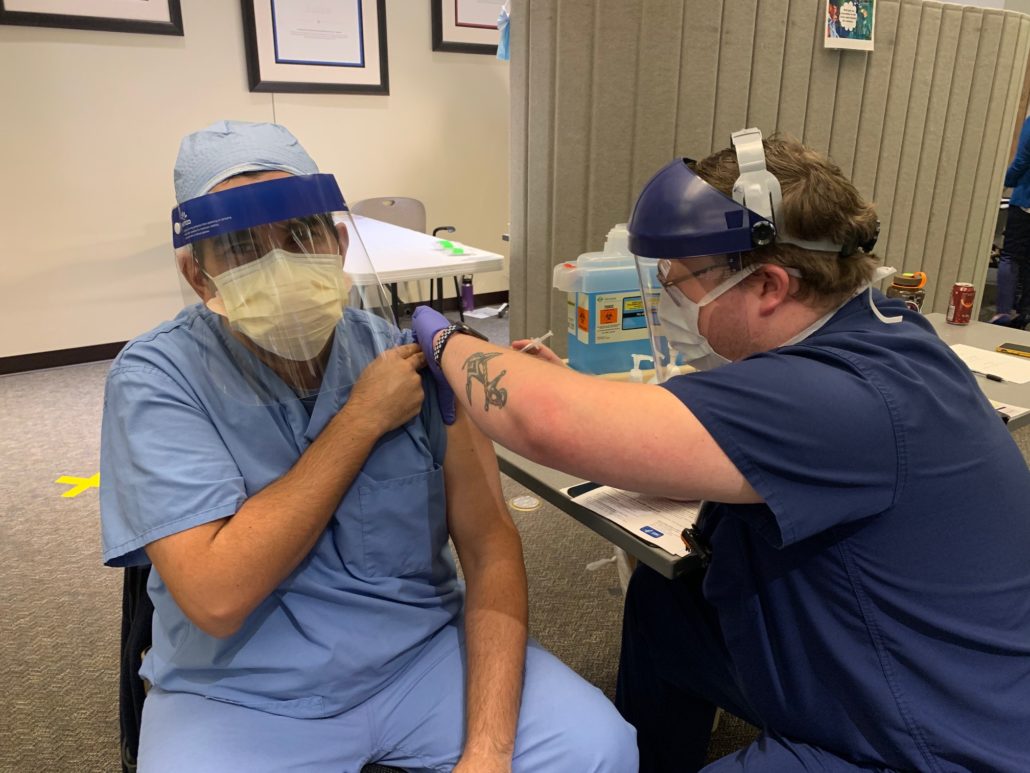 Our historical experience with coronaviruses is that they mutate, and with enough mutations it can impact the efficacy of the vaccine. I think about risk in a Swiss cheese model: to prevent an unfavorable outcome (infection in this case) we need as many layers of protection as possible. That way there are no perfect holes that can alights go through all the layers leading to a bad outcome. Vaccines are one layer, the mask is another, minimizing gatherings and social distancing is another… All of those precautions are important, and it’s prudent for all of us to continue to think in that direction because we still don’t know how things are going to unfold. We already have a couple variants and there are reports already about the concern over reduced efficacy of the current vaccine against the South African variant .
Our historical experience with coronaviruses is that they mutate, and with enough mutations it can impact the efficacy of the vaccine. I think about risk in a Swiss cheese model: to prevent an unfavorable outcome (infection in this case) we need as many layers of protection as possible. That way there are no perfect holes that can alights go through all the layers leading to a bad outcome. Vaccines are one layer, the mask is another, minimizing gatherings and social distancing is another… All of those precautions are important, and it’s prudent for all of us to continue to think in that direction because we still don’t know how things are going to unfold. We already have a couple variants and there are reports already about the concern over reduced efficacy of the current vaccine against the South African variant .
Now whether the vaccine will make a dent on transmission, that remains to be seen. It depends on how fast we can roll it out, and how many people will agree to take it, and how fast the virus is going to mutate. That’s a wild card. I’m almost certain that we’re going to be talking about a yearly COVID shot as more variants show up. When we get to the point that there’s a variant for which the vaccine is only 30% effective (let’s say), it becomes difficult to control these variants without putting together a new vaccine
At that point you start thinking, okay, we need to develop a COVID vaccine with one or two new mRNAs to reflect the changes in the viral structure, similar to what we do with the flu shot. Based on immunological studies and data, we decide which variants we include in the vaccine. Luckily working with mRNA will give us more flexibility. We’re manufacturing the vaccine now, versus growing a virus in a chicken egg (like flu vaccines). That’s a silver lining – in addition to pushing digital health care and telemedicine on the adoption curve, COVID has advanced vaccination science by years. The advancement in the use of mRNA technology is really exciting, with vaccine development as well as potential impact on use of mRNA in cancer treatment. I’m hoping the tech will allow us to adjust as needed, because I’m sure we’re going to get to a point where we need a new round of COVID vaccines.
Is there any message you’d like to leave us with?
In between the pandemic and the health care outcomes and the economic outcomes, there’s a lot of fragility and a lot of divisions, but the way I look at it, we’re all in it together. Whether you are on the right or the left, from here or there, we all live under the same sky, and we face the consequences of our decisions collectively and together.
It’s time to embrace each other in this environment and focus on what really matters, on how to carry along with this American experiment. It is unique, it is the only place that I want to be, but you know, nothing can be taken for granted, things need to be protected and worked on. We are in a time where we need to rethink how to really protect the middle class, how to best advance the economy at a time when tech is changing so fast that it’s rendering a lot of people outside of the new economy, leading to things like prolonged structural unemployment.
How do we deal with this? How do we deal with the fact that the infrastructure and industrial base has been gutted over the past two or three decades, as we’ve transitioned to a nearly full-service economy? Also, COVID has exposed issues related to reliance on the extended global supply chains. The lesson is to think local. Think regional, support small business, think about neighborhood and community. I only do as well as my neighbor is doing. Let’s embrace each another, despite the political polarization and fragility that we see. We need to come together and agree on facts, truths and science, and move forward.
